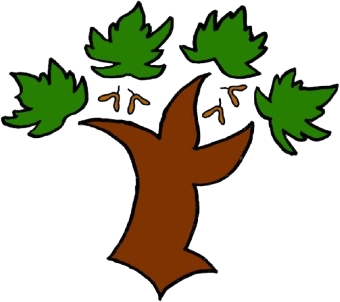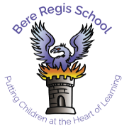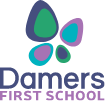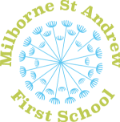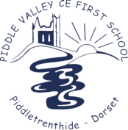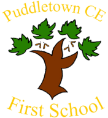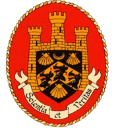
Music
Intent
At Puddletown First School, children gain a firm understanding of what music is through listening, singing, playing, evaluating, analysing, and composing across a wide variety of historical periods, styles, traditions, and musical genres. We promote music as a universal language that embodies one of the highest forms of creativity. We are committed to developing a curiosity for the subject, as well as an understanding and acceptance of the validity and importance of all types of music, and an unbiased respect for the role that music may wish to be expressed in any person’s life. We are committed to ensuring children understand the value and importance of music in the wider community and are able to use their musical skills, knowledge, and experiences to involve themselves in music, in a variety of different contexts. We intend to inspire musicians of the future and create a passion for music in all our children that will stay with them for a lifetime.
Impact
At puddletown first we are using the Wessex Schools Music is the in-house music service for the Wessex Multi-Academy Trust (formally known as DASP Music). They coordinate instrumental lessons and provide music support for schools across the Wessex Multi-Academy Trust and its affiliates. Wessex Schools Music also provides a range of musical ensembles, concerts, workshops and events throughout the year, with an aim to enhance the musical opportunities available to young people in the local area.
Music will be taught through an ambitious and engaging music curriculum, taught through weekly music lessons. There is also a monthly musician of the month in which children will listen to music and learn about composers and musicians. Weekly singing assemblies will be led by the music lead and have a focus on technical vocals and singing skills as well as an emotional and spiritual link to the song. The music lead also runs a weekly singing club and children have access to instrument lessons through the Wessex music service if requested.
All children will have regular opportunities to perform for example, in church, assemblies and for the Christmas show. The school will also have planned inspirational and aspirational musical experiences visiting the school, as well as a whole key stage trip to see a live orchestra.
By the end of year 4 our musicians are:
Confident performers who can:
• Sing a variety of songs by memory and in tune; unison songs, 2-4 part rounds, call and
response, partner songs and songs with simple harmonies, with increasing
accuracy/fluency/expression.
• Play or sing in time as an ensemble, with a clear sense of pulse (ie can stay in time).
• Play body percussion / do actions whilst singing showing an awareness of pulse/rhythm.
• play tuned percussion and other tuned instruments (such as recorder) using instrument specific technique with 3-5 notes.
• Play tuned percussion and other tuned instruments in an ensemble.
• Follow and play from simple notation rhythm and pitch notation (crotchets, quavers,
minims, rests, semi-quavers, 5 pitches).
Creative composers and who can:
• Create a range of different sounds with given instruments
• Start to use a variety of musical elements for specific effect in a composition.
• Improvise or compose descriptive music with a narrative (e.g a story), or music with a clear
structure (beginning, middle, end), for a range of purposes, which starts to use layers (e.g
drone /ostinato) with an awareness of how choosing different notes affects the feel of a
piece (e.g. major / minor / pentatonic).
• Create more complex rhythms using words.
• Create short melodic phrases of 3-5 notes (e.g using pentatonic scale).
• Can create create simple notation (standard and graphic) of rhythms and/or melodies they
have created.
• Collaborate with others to create a piece of music.
Active listeners who can:
• Respond to tempo/pitch/dynamic/structure/rhythm/timbre/texture through movement or
verbally and understand those technical words.
• Start to describe how the use of musical elements affect the intent of the music.
• Identify a sequence of sounds and recognise repetition and contrasting sections (structure).
• Start to identify different layers within music they hear (e.g melody, accompaniment,
ostinato, bass line)
• Identify more instruments and categorise instruments. E.g knows all the main instruments
of the orchestra and their families.
• Recognise the sound of major and minor chords/melodies.
• Start to describe music using musical vocabulary.
• Show an understanding that music comes in different styles and from different times and
places.
• Express an opinion about a piece of music and talk about the meaning of the music
Impact
We expect to see:
-all children making progress with their learning and enjoying music.
-a high uptake of extra-curricular opportunities by pupils and a positive parental engagement such as attending concerts
-music forming part of our pupils’ daily lives
-children and parents talking positively about music and that children are proud of their progress
-all of our children accessing music lessons
-children developing and using the language of a musician
We monitor the impact of our music provision by assessing and monitoring the progress of children against our progression map .Music lead will also monitor the uptake of extra curricular opportunities - adapting as necessary to make sure they are inclusive, exciting and inviting. Music lead will monitor how well we are embedding musical experiences across the curriculum – supporting teachers as necessary to find links within their topics.We will use Learning Walks to check on visibility of music in the school and to talk to children about their learning and how they feel about music and observe lessons to look at how questioning is used to extend children’s thinking and to see the language and vocabulary children are using.
